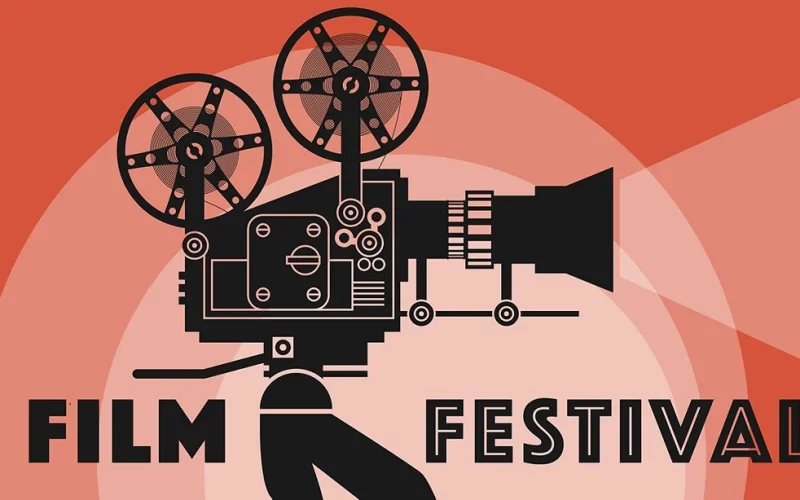Introduction
Film festivals have long been a cornerstone of the cinematic world, serving as a platform for filmmakers to showcase their work, network with industry professionals, and connect with audiences. However, as we move further into the digital age, the landscape of film festivals is undergoing significant transformations. This article explores the future of film festivals in a digital age, examining the opportunities and challenges that come with this evolution.
The Traditional Film Festival Experience

Traditionally, film festivals have been physical events held in various cities around the world. These festivals, such as Cannes, Sundance, and Toronto International Film Festival (TIFF), attract filmmakers, critics, and cinephiles who gather to watch premieres, participate in panel discussions, and celebrate the art of filmmaking. The physical presence at these events has always been a significant part of their allure, offering unique networking opportunities and the chance to experience films on the big screen.
The Rise of Digital Platforms

With the advent of digital technology, the film industry has seen a shift in how content is produced, distributed, and consumed. Streaming platforms like Netflix, Amazon Prime, and Hulu have revolutionized the way audiences access films, making it possible to watch movies from the comfort of their homes. This shift has also impacted film festivals, prompting organizers to explore digital avenues to reach a broader audience.
1. Virtual Film Festivals
One of the most notable changes in the film festival landscape is the rise of virtual film festivals. These online events allow audiences from around the world to participate in film festivals without the need for travel. Virtual film festivals offer several advantages:
- Accessibility: Virtual festivals make it easier for people from different geographical locations to attend, breaking down barriers and democratizing access to films and industry events.
- Cost-Effectiveness: Hosting a virtual festival can be more cost-effective than a physical event, reducing expenses related to venue rentals, travel, and accommodation.
- Environmental Impact: Virtual festivals have a smaller carbon footprint, as they eliminate the need for travel and reduce waste associated with physical events.
However, virtual film festivals also face challenges, such as ensuring robust digital security to prevent piracy and creating engaging online experiences that replicate the communal atmosphere of in-person events.
2. Hybrid Models
In response to the limitations of both physical and virtual festivals, many organizers are adopting hybrid models. These festivals combine in-person screenings and events with online components, offering the best of both worlds. Hybrid models provide flexibility, allowing attendees to choose how they want to participate and expanding the festival’s reach.
3. Enhanced Audience Engagement
Digital technology offers new ways to engage audiences beyond traditional film screenings. Interactive Q&A sessions, virtual reality (VR) experiences, and live-streamed panel discussions are just a few examples of how festivals can leverage digital tools to enhance audience participation. Social media platforms also play a crucial role in promoting films and fostering community engagement.
The Role of Technology in Film Festivals

Technology is not only changing how festivals are organized but also how films are created and presented. Advances in VR, augmented reality (AR), and artificial intelligence (AI) are opening up new possibilities for filmmakers and festival organizers alike.
1. Virtual Reality and Augmented Reality
VR and AR technologies offer immersive experiences that can transform how audiences interact with films. Some festivals have started incorporating VR and AR installations, allowing attendees to step inside the world of the film and experience it in a more visceral way. These technologies also enable new forms of storytelling, pushing the boundaries of traditional cinema.
2. Artificial Intelligence
AI is being used in various aspects of film production and festival organization. From script analysis and editing to audience analytics and personalized recommendations, AI can streamline processes and provide valuable insights. Festivals can use AI to curate film selections based on audience preferences, enhancing the overall experience.
Challenges and Considerations

While the digital age presents numerous opportunities for film festivals, it also brings challenges that need to be addressed:
- Digital Divide: Not everyone has access to high-speed internet or the necessary devices to participate in virtual festivals. Organizers must consider ways to bridge this gap and ensure inclusivity.
- Piracy and Security: Protecting digital content from piracy is a significant concern. Festivals must invest in robust security measures to safeguard films and intellectual property.
- Maintaining the Festival Atmosphere: Replicating the communal and celebratory atmosphere of physical festivals in a virtual space is challenging. Organizers need to find innovative ways to create engaging and interactive online experiences.
Conclusion
The future of film festivals in a digital age is a dynamic and evolving landscape. While traditional in-person festivals will continue to hold value, the integration of digital platforms and technologies offers exciting new possibilities. By embracing hybrid models, leveraging technological advancements, and addressing challenges, film festivals can continue to thrive and reach wider audiences. As the digital age progresses, the film festival experience will undoubtedly transform, offering new ways to celebrate the art of filmmaking and connect with audiences worldwide.












